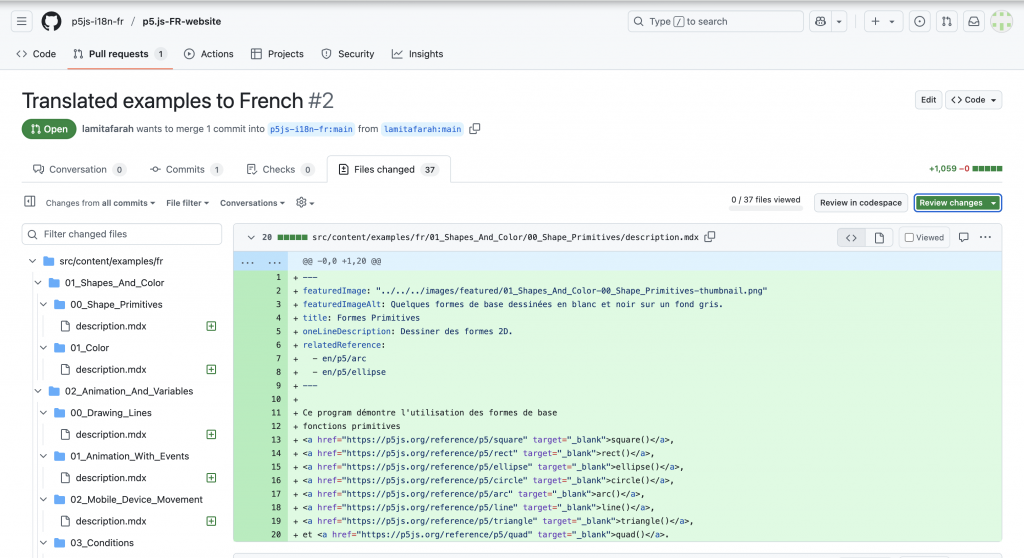GitHub for contributions
From this module, I gained a much deeper understanding of GitHub. In the past, I mainly used it as a place to upload and share code, but contributing to an open-source project showed me how essential GitHub is for collaborative development. It provides a shared platform where developers from all over the world can work together, organise tasks, and keep track of progress.
I learned how GitHub’s tools, like issues, pull requests, and version control, are essential for maintaining open-source projects. Issues allow contributors to flag bugs, suggest improvements, or coordinate efforts. Pull requests offer a structured way to propose code changes and request feedback. Version control helps track every change made, showing who did what and when, and ensures that multiple people can collaborate without overwriting each other’s work.

I also found the “Files changed” tab particularly useful. It allows contributors and reviewers to comment directly within the code, making the review process more efficient and clear.
This experience showed me how GitHub makes it easier for projects to grow and stay organised.
Future Improvements
I would like to continue contributing to the French translation of p5.js beyond this module. However, to make our collective efforts more effective, several improvements are needed.
First, there should be better communication between contributors, ideally through a shared platform like Discord or Slack. This would make it easier to discuss tone, technical vocabulary, and sentence structure, helping maintain consistency throughout the translation.
I believe that creating a shared glossary of technical terms, similar to the one used in the Japanese translation project, is the most important step to take after establishing the communication method. This glossary would keep the translations clear and consistent, while helping everyone stay aligned on commonly used terms.
For the specific case of the French language, it’s important to establish clear guidelines for grammar and style, especially regarding verb tense, formality, and sentence structure. French has multiple levels of formality and nuances in tone, so deciding early on whether to use tu or vous, the present or infinitive or imperative tense, and how to phrase technical instructions will help keep the translation coherent and user-friendly. Setting these standards as a team would ensure consistency and make collaboration easier over time.
Additionally, it would be beneficial to organise and divide the translation work more clearly. Creating a shared document or GitHub Project board could help track which files or sections each person is working on, to avoid duplication, and ensure balanced workload distribution. This would also make it easier for new contributors to find open tasks.
Finally, introducing a peer review process would help maintain translation quality.
Leave a Reply